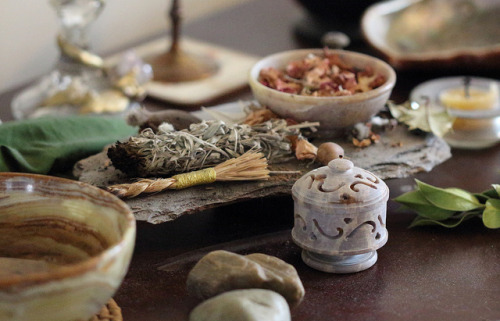I am almost two months into my second, and deeper dive into Paganism. And so far, so wonderfully good. But there is one thing that I've long wondered about.
Why are there so many modern, 21st Century, rational Pagans involved with something that has so many unprovable aspects. And mind you, I don't meant this in a negative way. I am involved, and believe in many unprovable aspects. But I'd like to hear some of your explanations.
We believe in, pray to, and have close relationships with beings that the mainstream would consider as fictional creatures of myth. We believe that crystals, oils, herbs, rituals and spells can have an impact on reality. And we believe that either the divine realm, our our divine center, can maniuplate cards, runes and pendulums to communicate with us.
Have you taken a leap of faith? Do you just have a strong sense that these beings and things are real and valid? Have you actually experienced these beings and witnessed unquestionable proof of magical objects and activities? Do you give the universe the benefit of the doubt? Are you both rational and spiritual, but the spiritual side has won? Have you seen the effects of pure materialism and rationalism on the society and yourself and realize both are found wanting? Have you figured our senses are so limited and assume there just has to be stuff beyond our senses?

To be honest I think the belief in crystals spells etc is facilitated by poplular paganism being an orthopraxy with an emphasis on how things are done rather than an orthodoxy that looks more at why things are done. It means that people can take up practices and be pagan without having to consider an underlying belief. They are free to believe whatever the like about the practice so long as they observe it. Its like lineaged wicca and thelema were you must observe things in a certain specific way but outside that you can believe and say and do what you like without it impacting on wicca or thelema.
ReplyDeleteI didnt take a leap of faith myself, Im from Ireland and its my experiences of deities immanent at heritage sites here that make me believe in deities. Our traditional culture isnt pagan but it believes in otherworldly deities and energies so I was raised knowing without question that they are as real and valid as the plate on the table.
Rational v spiritual I dont think rationalism is the foil to spirituality. Rationalism is like the consumerist quick fix for people who want to explain things away in a culturally accepted idiom rather than wanting to reason things through. Someone saying there must be a rational explanation for x despite their experience of it contradicting that explanation is like someone trying to explain y, say an unexpected death, by saying the fairies swept the person because they were so great. Its legitimising experience in a culturally accepted idiom. Not reasoning through the experience.
And in the argument of rationalism v reason its worth considering that reason was invented in pagan greece.
Thanks for your response. And I totally get the concept of orthopraxy. This concept is very prevalent in the Jewish faith, for which many of its adherents are more into doing than believing.
DeleteBut I am also interested in why this is all so prevalent in the Pagan community. (And I am cutting and pasting some questions that I posted in a discussion about this on Google Plus)
Are we becoming more open minded? Are we becoming more spiritually in tune? Is it a balm to the horrors of the 20th century, and the beginning of the 21st. Is it because the deities are getting impatient and are guiding us? Is it because the clutches of mainstream religions are diminishing and people are feeling more free to expand their spiritual outlook?